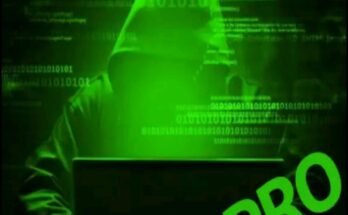Introduction WIFI Password
i well show about you WIFI Password In recent years, the fascination with hacking has grown immensely, driven in part by the proliferation of technology and the internet in our daily lives. One particularly enticing topic that has captured the imagination of many is Wi-Fi password hacking. Television shows, movies, and YouTube tutorials often depict hackers effortlessly breaking into secure networks and unveiling passwords. However, it is essential to understand that these portrayals are not only misleading but can also promote harmful activities.
Download App
The Illusion of Wi-Fi Password Hacking
Many entertainment outlets and online content creators have capitalized on the intrigue surrounding Wi-Fi hacking by creating shows or videos that make it seem as though anyone can become a Wi-Fi password hacker with a few clicks and keystrokes. These depictions typically involve a protagonist who uses a mysterious set of skills to infiltrate networks and gain unauthorized access to Wi-Fi passwords, often for personal gain or to advance the plot WIFI Password.
The Reality of Wi-Fi Security
In the real world, Wi-Fi security is far more complex than it appears in these portrayals. Wi-Fi networks are typically secured with encryption protocols like WPA2 or WPA3, which are designed to protect against unauthorized access. To gain access to a secured Wi-Fi network, a hacker would need to exploit vulnerabilities in these security protocols, which is a challenging task that requires specialized knowledge and skills WIFI Password.
Download App
Moreover, hacking into a Wi-Fi network without proper authorization is illegal in many countries and is considered a cybercrime. Unauthorized access to computer networks, including Wi-Fi networks, can lead to serious legal consequences, including fines and imprisonment.
The Role of Responsible Disclosure
In the world of ethical hacking and cybersecurity, professionals known as “white-hat” hackers use their skills to identify and rectify vulnerabilities in computer systems, including Wi-Fi networks. They do so with the consent of the network owner and follow strict ethical guidelines. This practice, known as responsible disclosure, is essential for improving security and protecting against malicious hackers WIFI Password.
It’s important to distinguish between ethical hackers and those who engage in illegal activities. Ethical hackers work within the bounds of the law and collaborate with organizations to enhance their security, while malicious hackers seek to exploit vulnerabilities for personal gain.
The Consequences of Misrepresentation
The portrayal of Wi-Fi password hacking as a simple and glamorous endeavor in popular media can have several negative consequences:
- Encouraging Illegal Activities: These depictions may encourage individuals, particularly young and impressionable audiences, to engage in illegal hacking activities, believing that it’s an easy and harmless endeavor.
- Underestimating the Importance of Cybersecurity: Simplistic portrayals of hacking can undermine the importance of strong cybersecurity practices. Users may not take necessary precautions to protect their networks, assuming that hacking is straightforward WIFI Password.
- Legal Implications: Those who attempt to replicate what they see on screen may find themselves facing serious legal consequences if they engage in illegal hacking activities.
- False Expectations: The illusion of Wi-Fi password hacking creates false expectations about the capabilities and limitations of technology, leading to disillusionment and confusion WIFI Password.
Conclusion
Wi-Fi password hacking shows and depictions in popular media may be entertaining, but they are far from reality. In the real world, hacking into secured Wi-Fi networks is a complex and often illegal activity. Responsible disclosure and ethical hacking are the proper ways to address security concerns and vulnerabilities.
It’s essential for individuals to understand that cybersecurity is a serious matter, and protecting one’s network should be a priority. Promoting ethical and legal behaviors in the realm of technology is crucial for a safe and secure digital future. Rather than trying to emulate fictional hackers, individuals should focus on learning about cybersecurity, practicing responsible online behavior, and supporting efforts to enhance digital security for everyone WIFI Password.
Expanding on the importance of responsible digital behavior and the need for cybersecurity education:
Promoting Responsible Digital Behavior
WIFI Password In a world where technology is deeply integrated into our daily lives, promoting responsible digital behavior is crucial. Instead of romanticizing illegal hacking activities, we should emphasize the importance of ethical behavior online. This includes respecting privacy, adhering to cybersecurity best practices, and reporting any security concerns to the appropriate authorities or network administrators.
One aspect of responsible digital behavior is respecting the digital boundaries of others. Attempting to access someone else’s Wi-Fi network without permission is not only unethical but also invasive. Just as we respect physical boundaries in the real world, we should extend the same courtesy to digital spaces.
The Need for Cybersecurity Education
Cybersecurity education is essential for both individuals and organizations. Understanding the risks and threats in the digital landscape is the first step in protecting oneself and one’s network. Educational initiatives can empower individuals to make informed decisions about their online activities and take steps to secure their Wi-Fi networks effectively.
WIFI Password For individuals, this means learning about password security, two-factor authentication, and the basics of network encryption. For businesses and organizations, it involves implementing robust cybersecurity policies and practices to safeguard sensitive data and information.
Furthermore, schools and educational institutions should integrate cybersecurity awareness into their curricula. This can help students develop digital literacy skills and make informed choices about their online behavior from a young age.
Ethical Hacking and Responsible Disclosure
Ethical hacking plays a critical role in maintaining the security of digital systems and networks. These professionals, often known as cybersecurity experts or penetration testers, work with organizations to identify vulnerabilities before malicious hackers can exploit them. Their actions are carried out legally and ethically, with the consent of the network owners.
Responsible disclosure is a key practice in the world of ethical hacking. When a security vulnerability is discovered, ethical hackers report it to the affected organization or vendor rather than exploiting it maliciously. This allows organizations to address the issue promptly, enhance their security, and protect their users.
By highlighting the positive aspects of ethical hacking and responsible disclosure, we can encourage individuals with an interest in technology to pursue legitimate careers in cybersecurity and contribute to a safer digital environment WIFI Password.
Conclusion
While Wi-Fi password hacking shows may provide entertainment value, they ultimately create unrealistic expectations and promote illegal activities. Responsible digital behavior, cybersecurity education, and ethical hacking are the cornerstones of a secure and ethical digital landscape.
As consumers and internet users, we have a collective responsibility to prioritize cybersecurity and foster a culture of ethical behavior online. By doing so, we can contribute to a safer, more secure digital future for ourselves and future generations.



